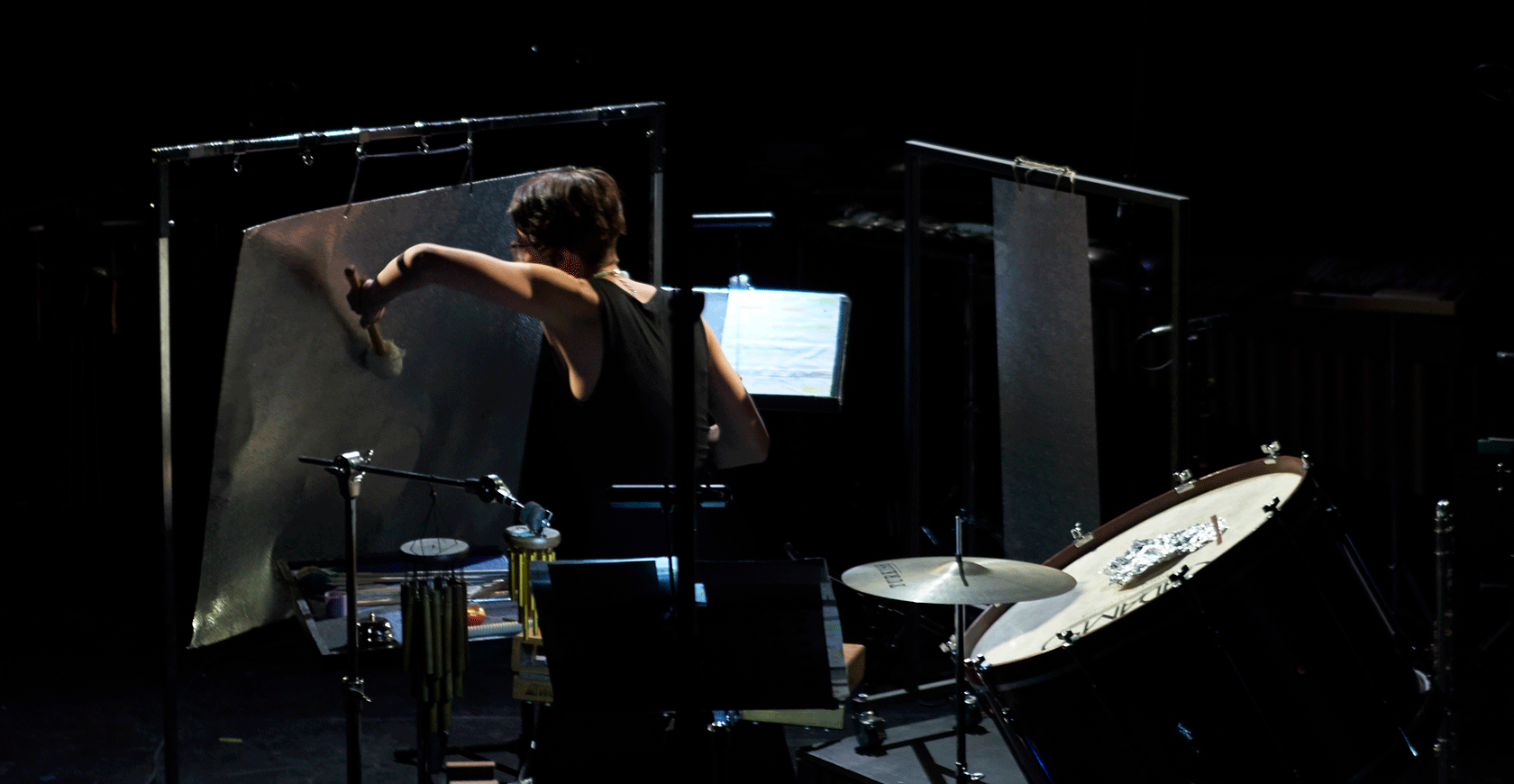Carriageworks and Ensemble Offspring present Lone Hemispheres, a one-night-only program of seminal works by revolutionary architect, mathematician and composer Iannis Xenakis, alongside newly commissioned solo compositions by Berlin-based Australian Cathy Milliken, and Sydney composers Elizabeth Younan and Michael Smetanin. The works will be performed on Tuesday 4 December by Véronique Serret (violin), Claire Edwardes (percussion) and Zubin Kanga (piano).
Carriageworks Director Lisa Havilah said “Carriageworks’ artist-led program continues to explore the latest in contemporary Australian music with this new commission by Ensemble Offspring.”
Ensemble Offspring founding member Claire Edwardes said, “The music of Iannis Xenakis is unashamedly bold, and Ensemble Offspring is also unashamedly bold. To champion Xenakis we have programmed three new works written to complement three classics by Xenakis for piano, violin and percussion. Lone Hemispheres is a celebration of a 20th-century genius and master alongside the newest of the new sound worlds – all the while featuring Ensemble Offspring core members as virtuosic soloists. Xenakis composed hard hitting music that is ecstatic and cathartic in its power and often deeply expressive. The performers of Xenakis’s music must be almost supernatural in their skills and a live performance allows listeners to witness a seismic musical event. It is summed up most succinctly by UK music writer and critic Tom Service who describes Xenakis’s work as – ‘a musical happening of cosmic intensity’.”
Iannis Xenakis (1922 – 2001) was a Romanian-born French composer, architect, and mathematician who originated musique stochastique, music composed with the aid of electronic computers and based upon mathematical probability systems. While the music has its roots in science and mathematics, critics characterise it as most of all expressive. A post WWII revolutionary, Xenakis fled Greece and sought asylum in France where he trained as an architect with Le Corbusier. He established the School of Mathematical and Automatic Music in 1966.
Xenakis’s long and fruitful association with the Paris Instrumental Ensemble for Contemporary Music led to frequent performances and recordings of his works for chamber ensemble. Xanakis composed works solely for electronic reproduction, such as Polytope of Cluny (1972, sound and light space with 7-channel electronic tape), and Mycenae A (1978, stereo tape realized with a UPIC computer), as well as works with both human and electronic components, such as Pour les Paix (1982), for mixed chorus, electronic tape, and narrators.
Three Xenakis pieces will be performed in tandem with three recent works by Australian composers:
Crie by Cathy Milliken, composed for Véronique Serre for violin and vocals (world premiere). Crie (pronounced Cree) from the French word meaning to cry out, is written for violin and voice, to be performed by a single musician. It was specially conceived and written for violinist Véronique Serret whose ‘rich voice’ inspired the composer and arose out of the urgency of our present historic moment. Miliken says, “Increasingly we are hearing of women being courageous enough to speak out about untruths or abuses.” The piece is described by the composer as being “about finding one’s voice and having the courage to utter its sound.”
Electors of Middlemarch by Elizabeth Younan, composed for percussionist Claire Edwardes. Composed by emerging Sydney composer Elizabeth Younan especially for percussionist Claire Edwardes, Electors of Middlemarchtakes excerpts from George Eliot’s novel Middlemarch (written in the 1870s) that demonstrate amusingly what happens to spoken sound when someone loses control over what they are trying to say. In three sections, this work explores the different relationships possible between the voice and percussion, creating both rhythmic and timbral counterpoint. Many of the rhythmic patterns recur in different contexts, providing subtly different variations which create a sense of instability.
Four Angels by Michael Smetanin, composed for pianist Zubin Kanga. Four Angels, for solo prepared piano was composed during March to May 2018 and is written for Zubin Kanga. It is an exploration of para-tonal possibilities through four, 4 x 4 matrices of tonal chords and the various blends of them in combination with the prepared lowest octave and a half of the piano. The altered pitch of the prepared notes together with the normally tuned upper pitches creates an ethereal, spectral like effect at times and is used to imply characteristics of the four principle heavenly angels. The composer describes the inspiration for this piece: “In Four Angels I aimed to complement Xenakis’s heavenly music through my solo piano piece for the remarkable Zubin Kanga, implying characteristics of the four principal angels, while also paying homage to my wife, mother and two daughters.”
